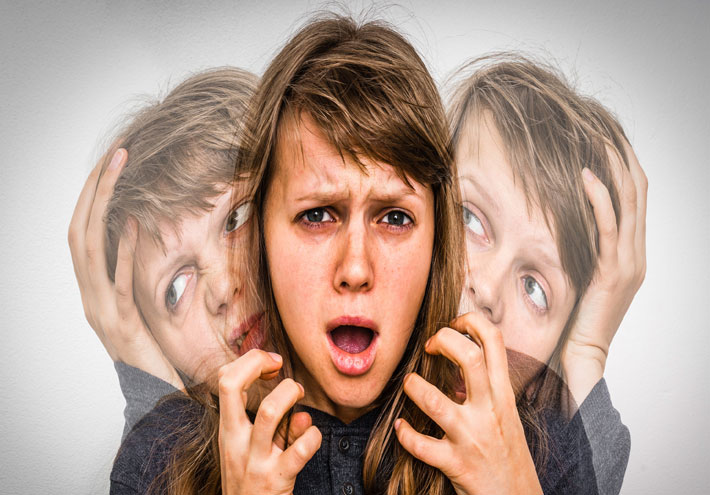Delusions in Schizophrenia: Causes, Symptoms, and Psychiatrist Treatment
Schizophrenia is a severe mental illness that impacts a person’s thoughts, emotions, and behaviors. One of the most common and distressing symptoms of schizophrenia is delusions. Understanding delusions, their causes, symptoms, and the treatment options provided by psychiatrists can help in managing this condition more effectively.
What Are Delusions?
Delusions are false beliefs that a person holds despite clear and obvious evidence that they are not true. These beliefs are not based on reality, but to the person experiencing them, they feel very real and convincing. Delusions can take many forms, and they can be quite varied in their nature.
Types of Delusions in Schizophrenia
- Paranoid Delusions: These are the most common type of delusions in schizophrenia. People with paranoid delusions believe that others are out to harm them. They might think they are being watched, followed, or plotted against.
- Grandiose Delusions: Individuals with grandiose delusions believe they have exceptional abilities, wealth, or fame. They may think they have a special relationship with a famous person or that they have extraordinary talents.
- Somatic Delusions: These involve beliefs about the body. A person might think they have a terrible illness, a parasite, or a deformity when they are perfectly healthy.
- Erotomanic Delusions: In these delusions, a person believes that another person, often someone famous or of higher status, is in love with them.
- Delusions of Control: These are beliefs that one’s thoughts or actions are being controlled by outside forces, such as aliens, government agencies, or other people.
Causes of Delusions in Schizophrenia
The exact cause of delusions in schizophrenia is not known, but several factors are believed to contribute:
- Genetics: Schizophrenia often appears in families, indicating a genetic link. Individuals with a close relative who has schizophrenia are at a higher risk of developing the condition themselves.
- Brain Chemistry and Structure: Imbalances in brain chemicals, particularly dopamine and glutamate, are thought to play a role in schizophrenia. Additionally, abnormalities in brain structure, such as enlarged ventricles or reduced gray matter, have been observed in people with schizophrenia.
- Environmental Factors: Stressful life events, prenatal exposure to infections or malnutrition, and substance abuse can increase the risk of developing schizophrenia and experiencing delusions.
- Psychological Factors: Cognitive deficits, such as problems with attention, memory, and executive function, can contribute to the development of delusions.
Symptoms of Delusions
The symptoms of delusions can vary widely but often include:
- Strongly Held Beliefs: The person holds onto their false beliefs firmly, even when presented with evidence to the contrary.
- Emotional Reactions: Delusions can cause intense emotions such as fear, anger, or elation.
- Behavior Changes: The person may act differently based on their delusions. For example, they might avoid certain places or people they believe are dangerous.
- Difficulty Functioning: Delusions can interfere with daily life, making it hard for the person to work, study, or maintain relationships.
Psychiatrist Treatment for Delusions in Schizophrenia
Treating delusions in schizophrenia typically involves a combination of medication, therapy, and support.
- Medications: Antipsychotic medications are the cornerstone of treatment for schizophrenia. These drugs help to balance brain chemicals and reduce or eliminate delusions. Common antipsychotics include risperidone, olanzapine, and quetiapine.
- Cognitive Behavioral Therapy (CBT): CBT helps individuals recognize and challenge their delusions and develop healthier ways of thinking. This therapy can be particularly effective when combined with medication.
- Supportive Therapy: Supportive therapy focuses on providing emotional support and practical assistance. It helps individuals cope with the challenges of living with schizophrenia and improves their quality of life.
- Family Education and Support: Educating family members about schizophrenia and delusions can help them provide better support to their loved one. Family therapy can also improve communication and reduce stress within the family.
- Hospitalization: In severe cases, hospitalization may be necessary to ensure the safety of the person with schizophrenia and others. This can provide a controlled environment for intensive treatment.
Conclusion
Delusions are a common and challenging symptom of schizophrenia, but with the right treatment, individuals can manage their symptoms and lead fulfilling lives. Understanding the causes, symptoms, and treatment options is essential for anyone affected by this condition. With the help of psychiatrists, medication, therapy, and support, people with schizophrenia can achieve significant improvements in their mental health and overall well-being.
Author
Psychiatrist in Gurgaon is renowned for his exceptional expertise and compassionate approach to treating psychiatric disorders, making him the best psychiatrist in Gurgaon for those seeking comprehensive mental health care.

